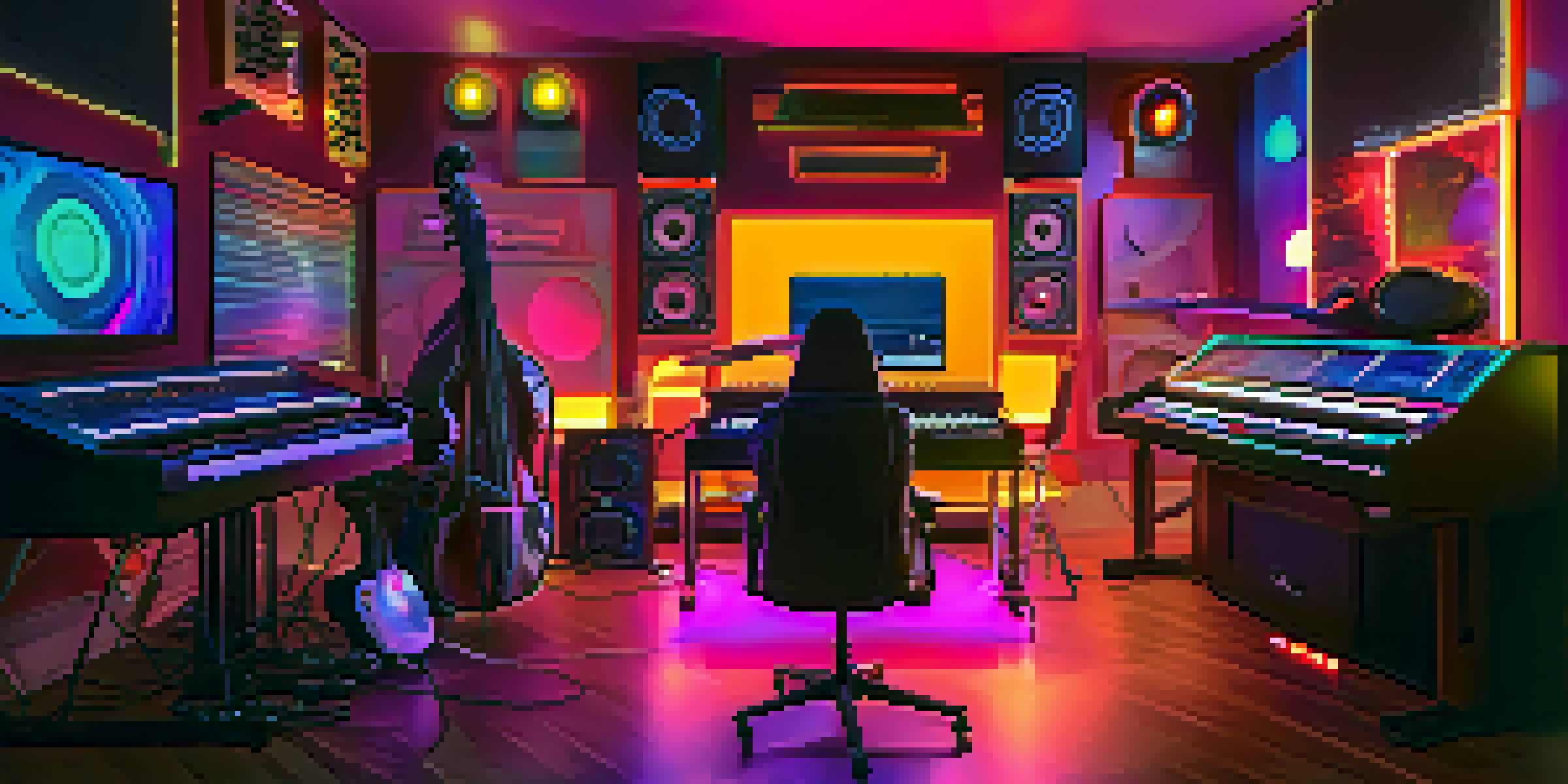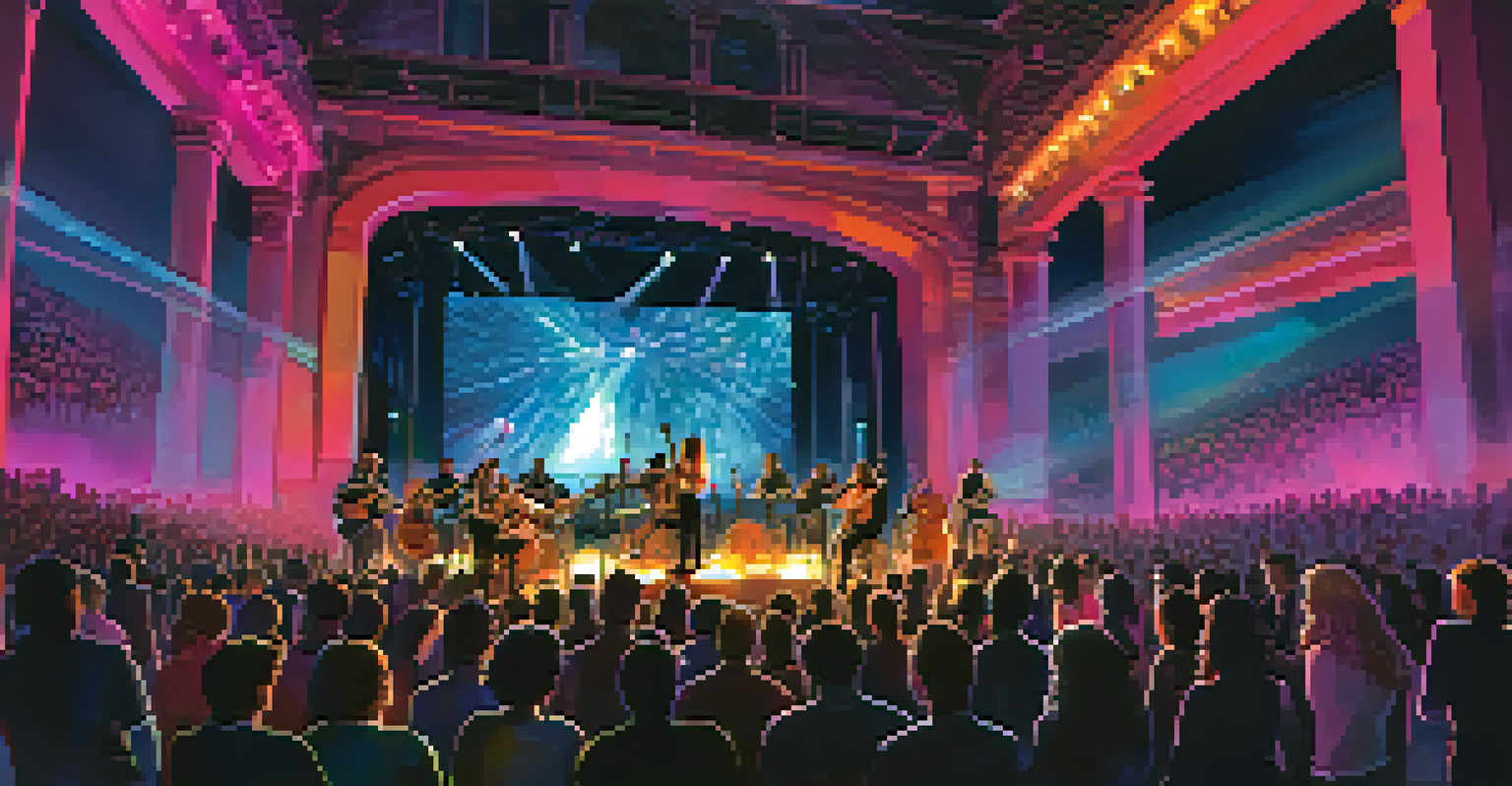The Future of Music: AI Composers and Their Creations

The Rise of AI in Music Composition
Artificial Intelligence is reshaping various industries, and music is no exception. From generating melodies to creating entire compositions, AI tools have become increasingly sophisticated. They analyze patterns in music and learn from countless examples, paving the way for new creative possibilities.
The greatest danger of artificial intelligence is that people conclude too early that they understand it.
One notable example is OpenAI's MuseNet, capable of generating music in multiple genres and styles. This technology allows artists to collaborate with AI, blending human creativity with machine-generated sounds. As a result, we are witnessing a unique fusion of traditional songwriting and modern technology.
However, the rise of AI composers raises questions about originality and creativity. Can a machine truly create art, or is it merely remixing what it has learned? As we delve deeper into the world of AI-generated music, these questions will become increasingly important.
How AI Composers Work
AI composers typically utilize deep learning algorithms to understand music theory and structure. They process massive datasets of existing music, identifying patterns, styles, and even emotional cues. By mimicking these elements, they create new pieces that reflect various influences, much like a human composer would.

For instance, an AI might analyze Beethoven's symphonies to grasp orchestration and harmony while also learning from contemporary pop hits for rhythm and catchiness. This ability to blend different genres and styles allows AI to produce innovative sounds that can surprise and delight listeners.
AI Enhances Music Composition
Artificial intelligence is revolutionizing music creation by enabling new collaborations between machines and human artists.
As technology continues to advance, AI composers are likely to develop even more sophisticated methods for creating music. With ongoing improvements in machine learning, we can expect to see AI that not only composes but also understands the emotional impact of its creations on listeners.
Collaborations Between AI and Human Musicians
The collaboration between AI and human musicians has led to fascinating new works that push the boundaries of creativity. Many artists are now using AI tools to enhance their songwriting process, generating ideas that they might not have considered otherwise. This partnership allows musicians to explore uncharted territories in their work.
Art is never finished, only abandoned.
For example, electronic musician Holly Herndon has created tracks that incorporate her AI, Spawn, as a vocal collaborator. This blending of human and machine voices showcases the potential for unique soundscapes that challenge traditional notions of authorship and creativity. The result is an exciting new direction for music that embraces technology.
These collaborations can also democratize music creation, enabling individuals without formal training to express themselves musically. With AI as a partner, anyone can experiment with composition, making music creation more accessible than ever before.
AI in Music Production and Performance
Beyond composition, AI is also making waves in music production and live performances. AI-driven tools can assist producers in mixing and mastering tracks, optimizing sound quality with precision. This not only saves time but can also elevate the overall production value of a song.
During live performances, AI can analyze audience reactions in real-time, allowing artists to adjust their setlists or even modify compositions on the fly. This interactive approach creates a dynamic concert experience that keeps audiences engaged and enhances the emotional impact of the performance.
AI's Role in Music Production
AI tools are transforming music production and live performances by optimizing sound quality and enhancing audience engagement.
As we look to the future, we can expect to see even more integration of AI in live music settings. Imagine concerts where AI algorithms help create entirely new arrangements based on audience preferences, making each performance a unique experience.
Challenges and Concerns in AI Music Creation
Despite the exciting advancements, there are significant challenges and concerns surrounding AI in music. One major issue is copyright and ownership—who owns the music created by an AI? As AI composers generate works based on existing music, it raises legal questions about intellectual property rights.
Moreover, there's a fear that the rise of AI could undermine the value of human creativity. If machines can compose music, will the role of human musicians diminish? This concern highlights the importance of preserving the human touch in art, ensuring that technology complements rather than replaces creativity.
Addressing these challenges will require ongoing discussions within the music industry, as well as the establishment of new guidelines and frameworks. Balancing innovation with ethical considerations will be crucial as we navigate the future of music.
The Impact of AI on Music Genres
AI's influence on music is evident across various genres, from classical to electronic. Different styles lend themselves to unique AI applications, with some genres benefiting more from algorithmic composition than others. For example, electronic music often embraces experimentation, making it a perfect playground for AI-generated sounds.
In contrast, genres like classical may require a more nuanced approach to composition, as traditional structures and emotional depth play a significant role. Here, AI can serve as a collaborative tool, helping composers explore new ideas while respecting the genre's rich history.
Ethical Concerns in AI Music
The rise of AI in music raises important questions about copyright, ownership, and the preservation of human creativity.
As AI continues to evolve, we can anticipate the emergence of entirely new genres that blend human and machine creativity. These hybrid styles may redefine how we perceive and categorize music in the future.
The Future Soundscape: What Lies Ahead
Looking ahead, the future of music with AI composers holds immense potential. We might see AI not just as a tool for creating music but as a partner in redefining the very essence of musical expression. This evolution could lead to forms of music that we have yet to imagine.
Advancements in AI technology could pave the way for personalized music experiences, where listeners receive tracks tailored to their tastes and emotions. Imagine an AI that crafts a playlist based on your mood or even generates a soundtrack for your life in real-time!

Ultimately, the future of music is likely to be a harmonious blend of human creativity and AI innovation. As we embrace this new era, it’s essential to remain open-minded and explore the exciting possibilities that lie ahead in our collective musical journey.